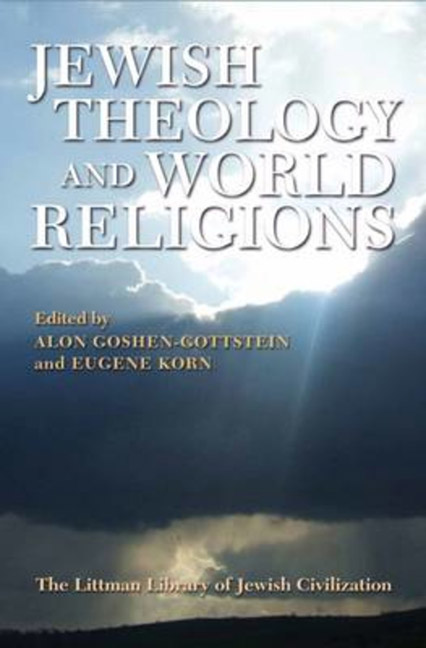Book contents
- Frontmatter
- Dedication
- Preface
- Contents
- Note on Transliteration
- Towards a Jewish Theology of World Religions: Framing the Issues
- PART I PHILOSOPHICAL PERSPECTIVES ON JEWISH PLURALISM
- PART II JUDAISM AND THE OTHER
- PART III JUDAISM AND WORLD RELIGIONS
- Concluding Reflections
- Notes on the Contributors
- Index
Preface
- Frontmatter
- Dedication
- Preface
- Contents
- Note on Transliteration
- Towards a Jewish Theology of World Religions: Framing the Issues
- PART I PHILOSOPHICAL PERSPECTIVES ON JEWISH PLURALISM
- PART II JUDAISM AND THE OTHER
- PART III JUDAISM AND WORLD RELIGIONS
- Concluding Reflections
- Notes on the Contributors
- Index
Summary
THE genesis of this book took place when twenty-five scholars of Jewish philosophy, history, education, and halakhah (Jewish law) met at the University of Scranton in Scranton, Pennsylvania in June 2005. They came from the United States, Israel, Canada, and Europe to discuss the theological challenges that inform Jewish attitudes to other religions and how Jewish thought and experience could serve as guides to contemporary life in which Jews interact with non-Jews. The conference was an initiative of the Elijah Interfaith Institute, headed by Alon Goshen-Gottstein, and grew out of the recognition that recent advances in interfaith work required serious progress in Jewish theology if it was to have contemporary credibility. A preliminary conference at Boston College in Brighton, Massachusetts was hosted by Ruth Langer, one of the contributors to this volume. The vision and commitment developed from that meeting found expression in the Scranton conference, hosted by Marc Shapiro, Professor of Jewish Studies at Scranton. The conference proved an occasion for rich and variegated reflection on Jewish relations with non-Jews, Judaism's norms regarding other religions, and the nature of Jewish uniqueness and identity. Because of the remarkable quality of the conference discourse, Alon Goshen-Gottstein and I realized that many of its fruits should be shared on a broader level to stimulate continuing reflection of the issues. We hope this volume achieves this objective.
The conference title, ‘Towards a Contemporary Jewish Theology of World Religions’, set the agenda for the project. Because of traditional Judaism's focus on halakhah and modern Jewish scholarship's emphasis on historical analysis, Jews have not yet turned their attention to a systematic—or even a nonsystematic, but sufficiently nuanced—body of thought regarding contemporary religious ‘Otherness’ and how Jews can appropriately understand and recognize other religions. Today's world differs radically from the biblical, talmudic, and medieval eras. Traditional precedents for this enquiry need to be supplemented and sometimes even supplanted. The Emancipation brought Jews into the mainstream of non-Jewish and secular societies, so that Jews today live, work, and interact with non-Jews—particularly Christians and Muslims— on a level fundamentally different from that of previous periods. Christianity and Christians no longer pose the threats to Judaism and the Jewish people that they once did, while some interpretations of Islam and many Muslims today see Judaism, Jews, and Israel as enemies.
- Type
- Chapter
- Information
- Jewish Theology and World Religions , pp. vii - xiiPublisher: Liverpool University PressPrint publication year: 2012

